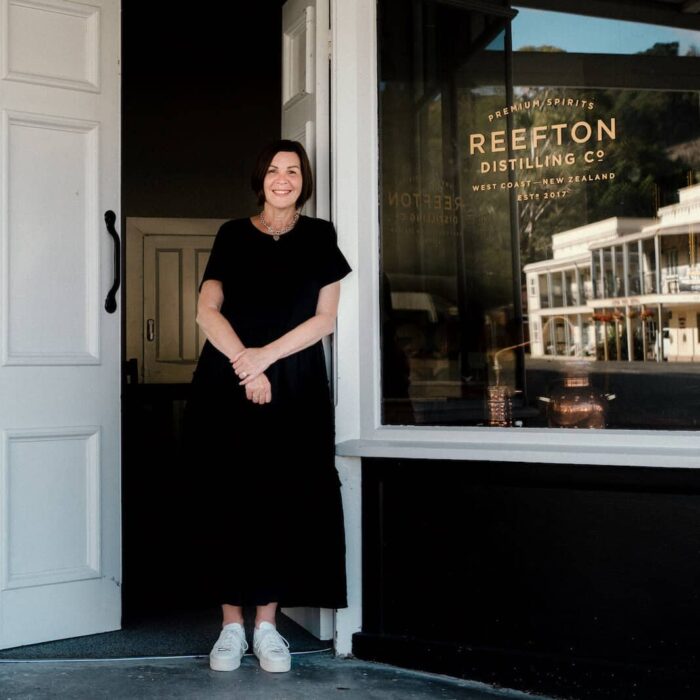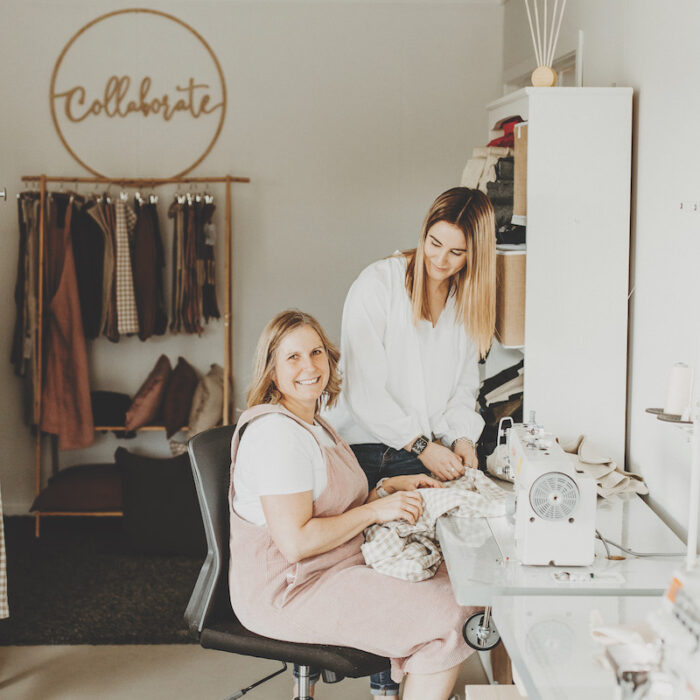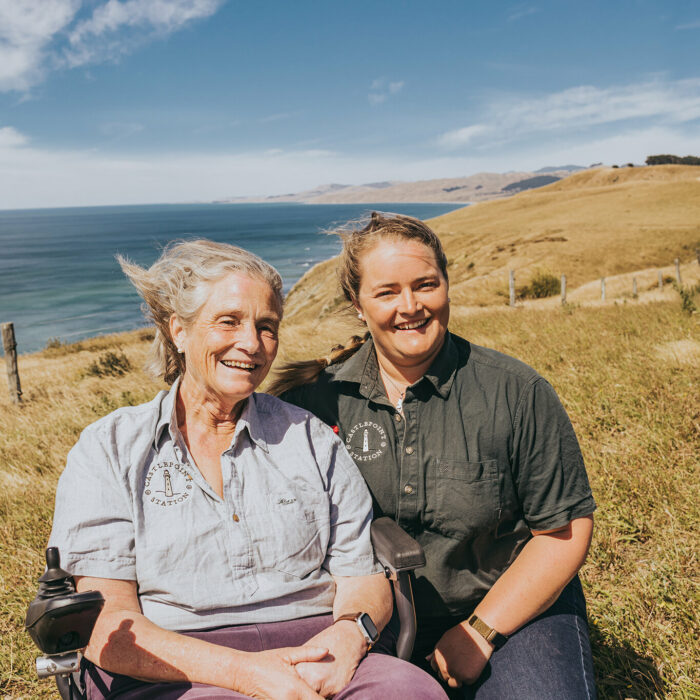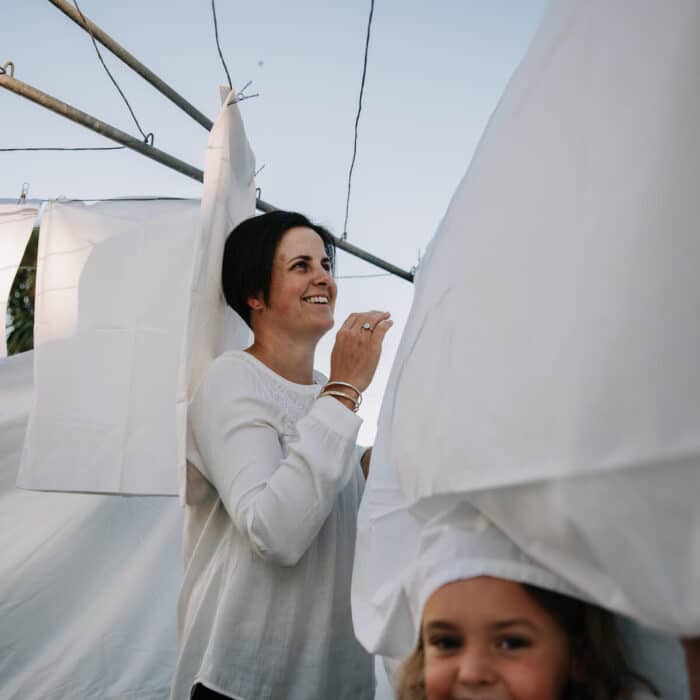
Being a counsellor who works with rural people, I do different things on different days. I work with children at primary school; I work with adults in person one day a week, and the rest of the time I am online – literally talking to people all over the country in all kinds of rural settings. That is my niche. I didn’t intend for it to happen that way, but it was a natural progression. My husband, Dave, is a farmer, and we live on a deer farm fifteen minutes out of Te Ānau, so I’m situated within the context of my work.
[My role] is not just being a counsellor: it’s being involved in a journey to learn about people, why they do what they do, and how to help them. I have carried out my own original research and I’m about to do more. It’s about understanding, at a fundamental level, what affects rural people, and bettering people’s lives. Listening to people’s stories, telling people’s stories with dignity and respect – it allows us to feel heard. We all need to be heard and understood and listened to.
My father was one of the aviation venison pioneers of Fiordland. My childhood was full of live deer recovery, live-capture venison, helicopters, planes, huge amounts of money, but also huge amounts of tragedy – so many lives lost, so many accidents. I think that’s what’s influenced me to go in the direction that I have today.
I went into hospitality straight out of school and was a professional cake decorator for nine years. I have made hundreds and hundreds of cakes. But in 2015, I had a moment of reckoning in my life where I thought, “I want to do something meaningful. I’m going back to university.” I dove straight into a double degree – sociology and psychology – then ended up falling into a Bachelor of Social Services and Counselling. That was a natural progression because I could do that from home.
I am a youth mental-health first-aid trainer as well. I train people in looking after someone mentally. I’m also on the Community Health Council, which advises Te Whatu Ora Southern. I inform them as a consumer about healthcare in Otago and Southland. I have just started a PhD with Otago University, researching the importance of rural community connection and wellbeing, and the things that can harm that. I’m specifically looking at productive farmland going into forestry.
I saw pretty early on that what we think about mental health in rural people is not what we see in the media. It’s portrayed as hinging on weather and stock prices – and they affect people, don’t get me wrong – but our suicide and poor mental health statistics weigh heavily on our young men. My daughter’s a shepherd, and through her I met a lot of young shepherds and I just kept hearing over and over again that this is a problem. Nobody is picking it up, nobody is taking any notice. So I ventured out to look more into this. My master’s research is titled Barriers to help-seeking for mental health issues in young rural males. I studied sixteen-to-thirty-year-old men on farm, looking at why they tend to suffer in silence.
I have written a lot about it. The New Zealand Association of Counsellors, GPs and psychologists’ magazines have all had material from me on how to deal with and relate to rural people. As far as I know, nobody else has done this, so that’s a pretty cool feeling.
There are a couple of guys that have been my long-term clients, who have worked up to being open and honest with the people around them about their struggles. When they do open up, they get everyone else opening up, too. It’s an absolute shock to them that this happens. I’m not shocked because I know how widespread the problem is, but for them to understand that they have this shared or common humanity, that [there are others] just like them, it makes them feel not so alone.
The more people that I can get to recognise and use the research I’m doing, the more people that I can reach to help, the better. That is my motivation. If it was about the money, I wouldn’t be doing it. If there’s any growth I want to see, it would be more research that highlights the things that rural people and communities experience, and in some way try to help. That is how I hope to make my mark.
The NZI Rural Women NZ Business Awards celebrate the creative and innovative women running rural businesses and their contributions to rural communities. Visit ruralwomennz.nz/business-awards/ for more information.
Related Stories
The Gin Genie
Nestled amongst the spectacular Paparoa and Victoria ranges, Reefton is home to the eponymous Reefton Distilling Co., founded by local Patsy Bass.
Mandy & Shania
In Riversdale, mother-and-daughter team Mandy and Shania are combining their skills and setting the bar high with their beautiful, classic women’s clothing.
Emily & Sarah
Twenty-two years ago, Emily and her husband moved their family from a 300 acre farm near New York to a 7,400 acre Castlepoint Station in coastal Wairarapa.
Building Upwards
Despite being flat-tack running a dairy farm and raising three children, Te Aroha farmer Kate is the successful owner of two small businesses.
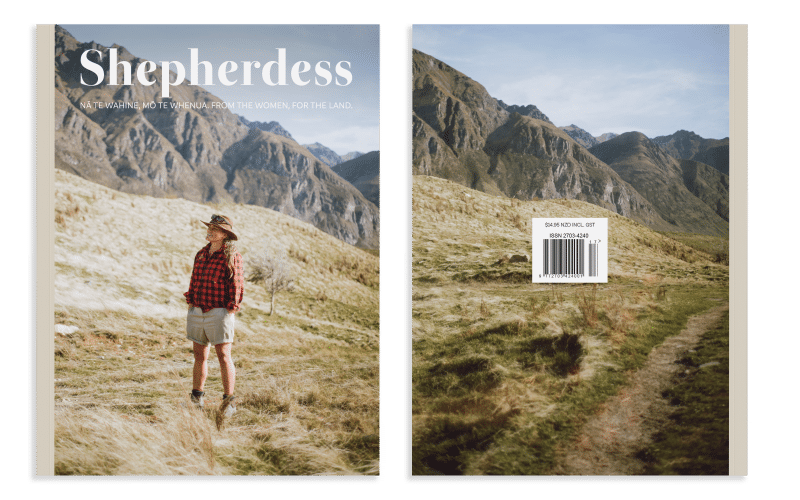
Out Now
Seventeenth Edition
Our beautiful Ngahuru Autumn 2024 Edition is out now!
